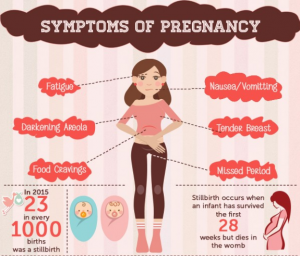What is the Beta hCG Test?

One of the most definitive ways to find out whether one is pregnant or not is through a blood test that measures human chorionic gonadotropin (hCG). This hormone is produced during pregnancy by the cells in the placenta. The beta hCG blood test can provide clear confirmation of pregnancy and is also used to monitor the progress of a healthy pregnancy.
This article will provide an in-depth look at hCG blood tests, the typical hCG levels in pregnancy, and how to understand your pregnancy blood test results.
What is hCG?
Human Chorionic Gonadotropin, commonly known as hCG, is a hormone the placenta produces during pregnancy. It helps thicken a person’s uterus lining to support a growing embryo and signals the body to temporarily pause menstruation cycles during pregnancy. It is also known as the “pregnancy hormone.”
hCG Test
The hCG test is used for detecting the presence of and measuring the levels of hCG hormones in the body.
The hCG blood test, also referred to as a quantitative hCG test, not only determines the presence of hCG but also measures the level of the hCG hormone in the blood. The hCG blood test for pregnancy can also assist in detecting issues such as ectopic pregnancies or potential miscarriages.
A blood sample is collected for this test, typically from a vein in the arm. The collected blood is then sent to a laboratory for analysis.
What are hCG levels in pregnancy?
The hCG levels in pregnancy can vary from person to person, however there is a specified range. In a healthy pregnancy, hCG typically increases by at least 50 per cent every 48 hours, frequently doubling every 72 hours during the first 8-10 weeks. HCG levels usually reach its peak around 10 weeks gestation.
Below is an estimate of your hCG levels in pregnancy based on the number of weeks since your last menstrual period.
| Weeks of Pregnancy | hCG level in blood |
| 4 weeks | 0 – 750 IU/mL |
| 5 weeks | 200 – 7,000 IU/mL |
| 6 weeks | 200 – 32,000 IU/mL |
| 7 weeks | 3,000 – 160,000 IU/mL |
| 8-12 weeks | 32,000 – 210,000 IU/mL |
| 13-16 weeks | 9,000 – 210,000 IU/mL |
| 16–29 weeks | 1,400 – 53,000 IU/mL |
| 29-41 weeks | 940 – 60,000 IU/mL |
How to read pregnancy blood test results?
You can check the hCG levels once you get the pregnancy blood test results. If the pregnancy blood test results detect a level of hCG of less than 5 mIU/mL, it is considered non-pregnant or negative for pregnancy. Whereas a level above 25 mIU/mL is considered a positive pregnancy test.
However, an hCG level between 6 and 24 mIU/mL falls into a gray area where the results are inconclusive. If your pregnancy blood test result falls into this range, you will likely need to repeat the test in a few days.
What do high and low hCG levels mean during pregnancy?
The hCG blood test results may show high or low levels of hCG.
High hCG Levels
A high hCG level in pregnancy can be due to the following reasons:
- Multiple pregnancies: A high hCG level may indicate that you may be carrying twins or triplets. However, it is not conclusive evidence. An ultrasound is needed to confirm multiple pregnancies.
- Wrong gestational age: If you have a higher-than-expected hCG level, you may be farther along in your pregnancy than originally thought.
- Molar pregnancy: A higher hCG level is also indicative of a molar pregnancy or gestational trophoblastic disease.
Low hCG levels
The reasons for low hCG levels in pregnancy are:
- Miscarriage: A low level of hCG in early pregnancy can mean an increased risk of a miscarriage.
- Ectopic pregnancy: An ectopic pregnancy takes place when the embryo implants outside the uterus (most often in the fallopian tube). This can be fatal. In this case, the expectant mother may have low or falling hCG levels.
- Blighted ovum: Also called an anembryonic pregnancy, this is an early miscarriage where a fertilized egg implants in the uterus but fails to develop into an embryo.
Remember that low or high hCG levels in pregnancy are not conclusive in themselves, and so it’s important to contact your healthcare provider to learn more. Follow-up testing and close monitoring of hCG levels are often needed to clarify the underlying cause.
HCG is a key pregnancy hormone that blood tests can accurately measure. Tracking hCG levels helps confirm the pregnancy, date the pregnancy timeline, and monitor for complications. While individual levels vary, understanding the typical hCG range throughout gestation provides insight into a healthy progression.














